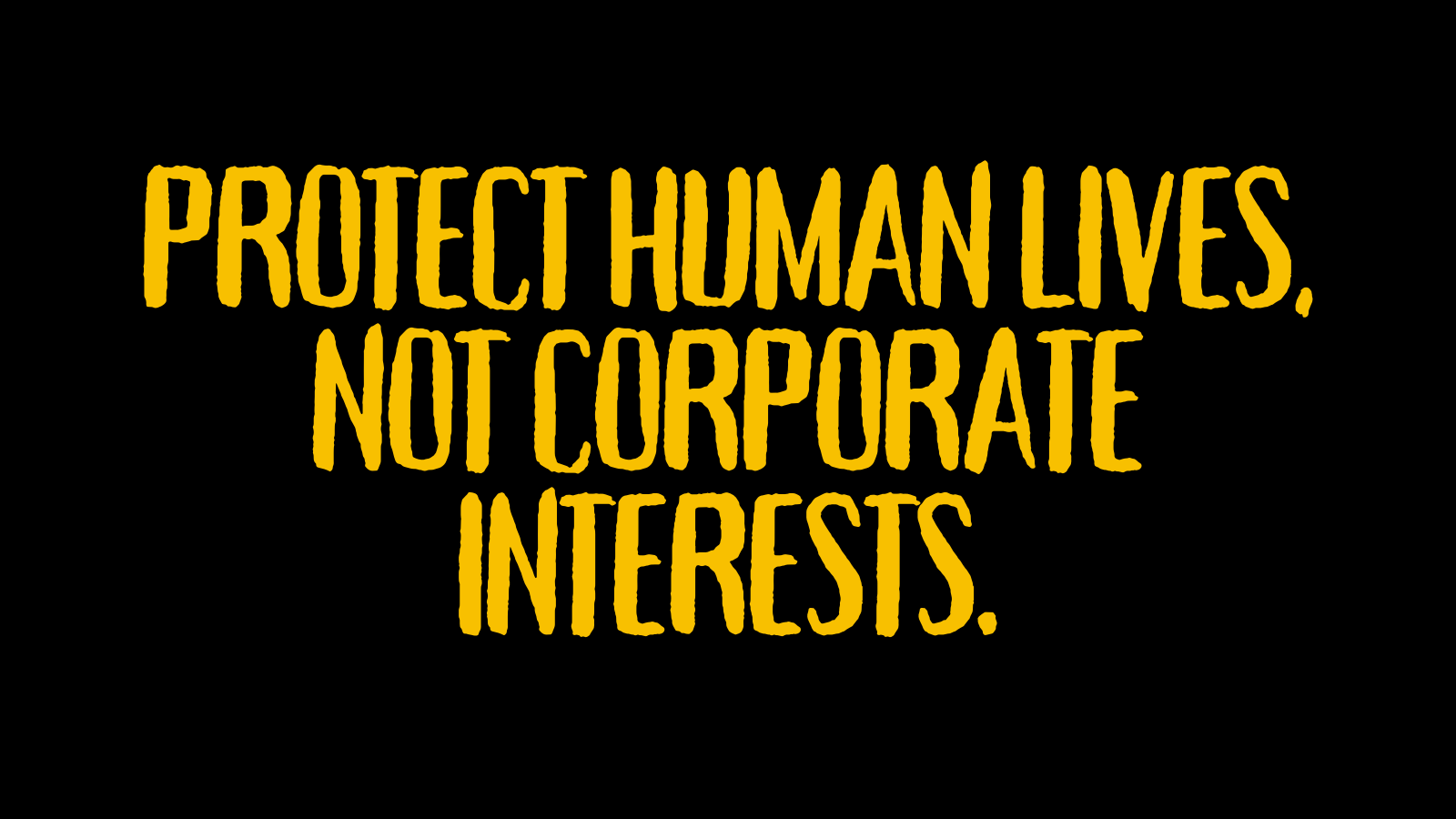
Experts: Corporate immunity would increase spread of COVID-19 while gutting workplace safety, civil rights and worker protection laws
Advocates for consumers, patients, and workers came together this week to warn against a sweeping and unprecedented proposal in Congress that would use the COVID-19 crisis as an excuse to grant corporations broad immunity against violations of workplace safety guidelines as well as civil and legal rights..
Organized and hosted by Public Citizen, the advocates held a telephone news conference in which they charged Senate Majority Leader Mitch McConnell (R-KY) and other Senate Republicans of holding COVID-19 relief legislation hostage in exchange for immunity for corporations. The proposal is favored by the U.S. Chamber of Commerce and major corporations, but is opposed by a growing coalition of groups that represent essential workers, nursing home residents and staff, people with disabilities, and many others.

Besides Public Citizen, the groups represented at the news conference included the Leadership Conference on Civil and Human Rights (LCCHR), the Service Employees International Union (SEIU), the National Employment Law Project (NELP), the Bazelon Center for Mental Health Law, and Consumer Voice, which advocates on behalf of nursing home residents, who have seen more than 100,000 deaths in the U.S. during the coronavirus pandemic.
Debbie Berkowitz, Safety and Health Program Director at NELP, spent six years as a senior official at the Occupational Safety and Health Administration (OSHA) under the Obama Administration. She is a workplace safety expert, with more than three decades in the field.
Berkowitz says media reports on the corporate immunity proposal have overlooked language that would, if passed by Congress, lead to an increase in COVID-19 illnesses and deaths in the workplace.
“This bill strips all COVID-related worker safety protections from all workers (including protection from retaliation) during the worst occupational health crisis in our lifetimes,” Berkowitz said.
Berkowitz said the legislation not only would prevent OSHA, a federal agency, from enforcing COVID-19-related safety precautions, but also “stunningly” would prevent state workplace safety agencies from any COVID-19-related enforcement, even when many state agencies have passed and have been enforcing basic requirements for employers to mitigate the spread of COVID-19 at work.
“Just to be clear, workplace safety rights are already weak – and if OSHA is banned from enforcement for violators, workers are on their own,” Berkowitz said. “Workers cannot sue under the OSHA law. There is no right under the OSHA law for workers to go into court and sue that their employer is not following the OSHA law.”
From the beginning of the pandemic, Berkowitz and other experts say, workplace exposures to COVID-19 are a main driver of the spread of the disease back out into the community. A new study, published by the National Academy of Sciences, found that in the pandemic’s first four months in the U.S., 8 percent of all COVID-19 cases were connected with the “unmitigated spread” of the disease in just the nation’s meat-packing and poultry-processing plants. “It is clear that to mitigate and stop the spread of COVID-19 in our communities, we must stop the spread at work,” Berkowitz said. “But this bill would do the opposite.”
In fact, Berkowitz said, the legislation would take us in the opposite direction when it comes to workplace safety by preventing the Trump Administration from pursuing the few citations it already has issued – under the measure, OSHA would be required to revoke the citations. Still worse, it would tie the hands of the incoming Biden Administration, assuming it would be intent on pursuing more aggressive enforcement. “It would mean in workplaces where there is exposure, sickness, and deaths – and there is no PPE, no social distancing, no masks, no ability to wash hands – workers would be on their own,” she said. “This bill would undermine all efforts to mitigate the spread of COVID-19 at work, and back out into the public and lead to more illness and deaths. It would also disproportionately affect the health and lives of Black and Brown workers who make up the majority of so many of our essential workplaces. It is a travesty.”
But, explains Gaylynn Burroughs, Senior Policy Counsel at the Leadership Conference on Civil and Human Rights, this is not just a workplace safety issue. It also is an unprecedented and broad-based attack on civil rights and other laws.
Burroughs said the legislation would give corporations the ability to obtain immunity from federal civil rights and worker protection laws, including Title VII of the Civil Rights Act of 1964, the Americans with Disabilities Act, the Age Discrimination in Employment Act, and wage and hour laws.
“Black, Latino and Native people, immigrants, women, seniors, and people with disabilities have been hardest hit by this pandemic and are also particularly vulnerable to discrimination and abuse on the job,” Burroughs said. “This makes our federal civil rights and worker protection laws even more essential in this crisis to safeguard fairness, safety and dignity – in addition to economic security.”
Burroughs said members of Congress “should be focused on providing desperately needed relief for those struggling to make ends meet and keep a roof over their heads, and providing state and local funding to support essential services. Business immunity does neither. And by giving businesses and employers a free pass on wrongdoing, it would make the country less safe as we enter a new, dangerous phase of the pandemic. Congress must act to address the current crisis, but relief should not come at the expense of the health and safety of working people and the public, and in particular should not exacerbate the harm of this pandemic to people of color, women, people with disabilities, seniors, and those living in nursing homes or other long-term congregate care facilities.”

